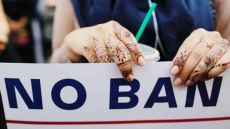Pakistan treats America like a "limitless ATM" and most of the US aid to the country goes to the military's kitty, a private US defence contractor who was responsible for one the worst bilateral tensions, has said.
"For Pakistan, no amount of money ever seemed to be enough. The economic aid it received from the United States became a drug it alternately loathed and could not live without," Raymond Davis said in his book "The Contractor".
Mr Davis, 42, was arrested in Lahore in 2011 on charges of killing two Pakistani citizens and thus kicked off a huge diplomatic crisis between the two countries.
Having a first-hand experience of how the system works in Pakistan, the CIA contractor wrote that most of the US aid ended up with the Pakistan military and not with the civilians.
"As dysfunctional as the relationship between the United States and Pakistan was, it was made worse by the fact that most of the aid typically ended up in the hands of the Pakistani military, while much of its population continued to languish in poverty," Mr Davis said.

In his book, Mr Davis writes that the real power in Pakistan lies with the military.
"While Pakistan is said to be a parliamentary federal republic with a president who serves as head of state and a Prime minister who runs the government, everyone knows that the real power in that country lies with the military," he wrote.
"For more than half of the sixty-four years that had passed since its birth as a nation, Pakistan had been under military rule. It devoted nearly a quarter of its budget to defence spending. As recently as 2007, Pakistan had been under martial law. That same year, President Pervez Musharraf, a former four-star general, suspended the constitution, had the leader of the opposition party arrested, and dismissed the Supreme Courts chief justice," Mr Davis said.
"In short, you did not want to cross the military in Pakistan," he said.
Between 1954 and 1959, the US gave Pakistan USD 1.28 billion.
"By 2011, the total amount of aid doled out by the United States had ballooned to USD 67 billion," he wrote in his book.
"After 9/11, the US, using Coalition Support Funds, also reimbursed Pakistan for any money it spent combating terrorism, a policy that was somewhat flawed because, while it was supposed to encourage the Pakistani military to fight local militants, it provided little incentive for it to do the job well," Mr Davis rued.

"After all, if all the terrorists disappeared, so too would the seemingly limitless ATM that was the United States," he said in the book which gives graphic details of his arrest in Lahore and his subsequent release.
"Having grown dependent upon these annual disbursements of aid from the US and with fewer than two million of its 182 million citizens paying income tax, Pakistan had become the very definition of a "rentier state," a country that receives a disproportionate amount of its revenues from external sources, kind of like the ne'er-do-well child of fabulously wealthy parents," Mr Davis said.





